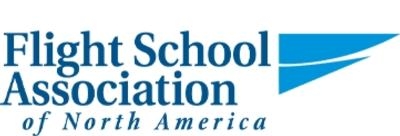FAA Will Require Time To Clear Its Backlog
There are direct and real effects on the pilot training system in the United States as a result of the partial government shutdown that can be in at least part alleviated through some allowance of extension of currencies of various parties engaged in the business of flight training, according to the Flight School Association of North America (FSANA).

The effects of shutdown will be ongoing as FAA staff work to catch up from the time they have not been in the office. FSANA is working to help alleviate some of the those effects on flight training providers around the country. Specifically, they say they are aware of the fact that expiration of FAA Part 141 and 142 training programs authorizations represent a real potential threat to the continued provision of training. Additionally, the expiration of designees authorization for testing activities and the expiration of temporary airman certificates will limit students ability to continue training, testing, and to use their pilot certificates if they expire.
FSANA submitted a letter to the FAA requesting relief and extension where appropriate to ensure that non-governmental entities and individuals who are normally authorized by governmental staff to do their activities be authorized to continue and that temporary certificates be considered valid beyond their normal 120-day currency period. These are critical requests that the association hopes the FAA will be able to address with the recent re-opening of the government, at least temporarily, and with limited FAA staff in the event that there is another shutdown.
If these requests are not allowed, FSANA has had direct indications from training providers that their ability to provide training will be limited or stopped.
The following are some examples of the potential effects if expiring authorizations are not able to be renewed, extended, or exempted.
Effects on 141/142 Programs
Part 141 training providers that expire will no longer be able to provide training in accordance with FAA 14 CFR 141 training requirements. They may still provide training under 14 CFR 61, but this would remove some of the allowances for reduced time minimums for their students, directly increasing the cost of training and expanding the number of hours students must complete to be eligible for ratings or certificates. Additionally, any training and testing that was then completed not under 14 CFR 141 would likely negate the ability for students to qualify in the future for Restricted ATP qualifications, additionally increasing the number of hours they would need to be eligible for future employment in some environments. FSANA is aware of at least one collegiate program that has a pending renewal and expiration of authorization and is already making plans to prioritize non-14 CFR 141 students if there is any lapse in ability to provide this training and to furlough staff that provides that training
until such a time as it can be re-established.
Designee Currency Effects
FAA Designees who provide testing services on behalf of the FAA are even more critical at this time while the FAA is unable to fully provide services. Many of these designees experience currency requirements expiration for training normally provided by the FAA or renewal of their authorizations that expires at the end of calendar months. FSANA is aware of locations around the country where training normally conducted by the FAA had to be cancelled and additionally multiple examiners who are waiting renewal paperwork processing that has been unable to be completed during the shutdown. FSANA has requested that these designees be allowed to continue conducting their activities and given extensions of their authorizations until such a time as FAA staff is able to process them. If this is not possible, the testing and training system is going to begin to grind to a halt, with greater affect each month that additional expirations are experienced. This directly affects the ability to continue filling the
pool of pilots required to fly in the United States.
Temporary Airman Certificates Expiring
The expiration of temporary airman certificates without an ability to obtain either new temporary airman certificates or the permanent certificates means that pilots will not be able to exercise their pilot privileges during any certificate lapse in currency. This also means that student pilots who are continuing training would not be able to do so and any pilots who have expired certificates would not be able to test for subsequent pilot ratings or certificates (a current pilot certificate is required for an FAA practical test). FSANA has asked that the FAA allow temporary certificates to be considered valid for longer than the standard 120-day period until such a time as the FAA is able to catch back up on processing or have staff available to issue new temporary certificates for those that experience expiration. The first to be affected by these will not actually be recipients of temporary certificates issued during the shutdown since December 19th, 2019, but those that had previously received
temporary certificates back in November and some cases October for whom the shutdown delayed the process of certificates that would normally have already been received.
These are but a few of the examples of the effects of the shutdown on current flight training and testing operations around the country, but they are ones that FSANA is hopeful the FAA will be able to provide some relief.
FSANA has already had response from senior FAA staff that these are issues they are working on with priority and that they expect some relief and positive improvement to be available within the next couple of days. FSANA will provide updated information or any communication of relief when possible. On Wednesday, the association reported that the FAA had issued policy memorandum allowing deviation from some expiration dates, specifically designees who have recurrent training, oversight, and renewal due on or after December 22, 2018 through April 30, 2019.
This is pertinent to any designees who experienced currency requirement lapses or would in the near future, allowing for extended time to continue operating until those requirements can be met.
(Source: Flight School Association of North America newsletter)
 Senator Pushes FAA to Accelerate Rocket Launch Licensing
Senator Pushes FAA to Accelerate Rocket Launch Licensing Classic Aero-TV: RJ Gritter - Part of Aviations Bright New Future
Classic Aero-TV: RJ Gritter - Part of Aviations Bright New Future Aero-FAQ: Dave Juwel's Aviation Marketing Stories -- ITBOA BNITBOB
Aero-FAQ: Dave Juwel's Aviation Marketing Stories -- ITBOA BNITBOB ANN's Daily Aero-Linx (10.27.24)
ANN's Daily Aero-Linx (10.27.24) ANN's Daily Aero-Term (10.27.24): Clearance Void If Not Off By (Time)
ANN's Daily Aero-Term (10.27.24): Clearance Void If Not Off By (Time)



